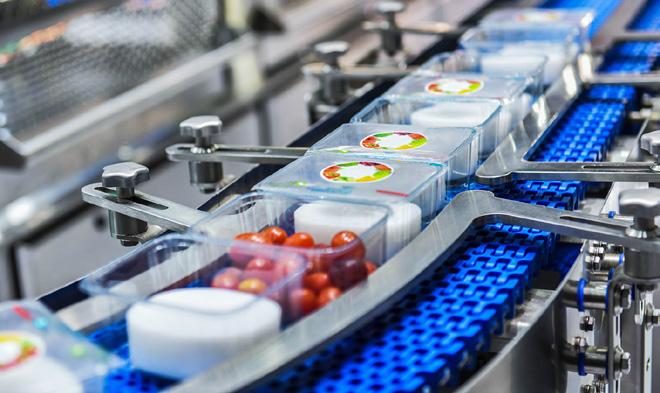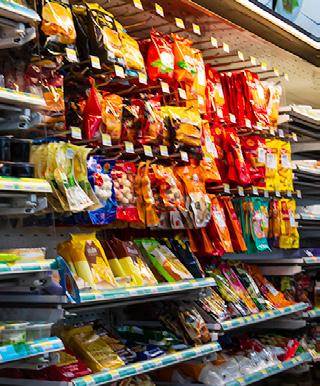
5 minute read
Technology to drive food processing forward
Frank Malerius
The food sector is an indispensable pillar of the Thai economy. It accounts for 16 per cent of Thailand’s manufacturing output. This makes it twice as large as the automotive industry. It is also the most important export industry after the electronics sector. In 2024, Thailand exported food products, including agricultural commodities, worth 40 billion US dollars, ranking 11th in the world (excluding the commodity hubs of the Netherlands and Belgium).
If you put these export earnings in relation to economic output, Thailand would rank first by a wide margin. This is because Thailand is one of the world's largest exporters of rice, sugar, tinned fish, fresh and processed fruit, and chicken meat. Worldwide, only Brazil has a higher foreign trade surplus in food and agricultural commodities than Thailand.
Despite this already outstanding position, there is still great potential for increasing production. The development opportunities begin in agriculture, which is still dominated by small-scale farming. Here, the imminent shrinking of Thailand's population will lead to land consolidation, which will allow greater use of technology.

Product innovations promise further growth – for example in the areas of functional, personalised, or medical food (so-called “future foods”) – for an increasingly urban and ageing Thai society. In addition, efficiency gains in food processing and packaging are possible through greater use of technology, whether through Industry 4.0 applications, big data, or artificial intelligence.
All of this untapped potential in the Thai food industry is addressed by policymakers in the Action Plan for the Development of the Food Industry 2019 - 2027, which aims to consolidate the country's leading position in the region.
Note: Table of Thailand's food exports is available in GTCC UPDATE's pdf version only.
MORE HIGHLY PROCESSED FOODS IN DEMAND
According to the National Food Institute (NFI), Thailand's 128,000 food processing companies employ 1.1 million workers, and 94 per cent of these are small and micro enterprises, which account for around a third of all employees. Only 0.5 per cent of the players are large companies, but they employ half of all employees in the sector. These large food companies are also active abroad. For example, the fish processor Union Food owns the German company Rügen Fisch.
A productive and well-integrated food sector is particularly important for domestic prosperity. The average Thai household still spends 35 per cent of its income on food (compared to 14 per cent in Germany). Until now, Thais have mainly consumed minimally processed food, such as freshly prepared rice or noodle dishes. On the way to work, they might buy pre-cooked lunches for the office from street vendors. However, urban dwellers with limited time are increasingly turning to highly processed foods. These can be found in the countless convenience stores on virtually every street corner. Processed foods also dominate TV and outdoor advertising. Their growing share of food consumption requires greater use of technology.
This is good news for the German machinery industry. In Thailand, as everywhere in the ASEAN region, it is increasingly suffering from the dominance of Chinese manufacturers, but it has a disproportionately high market share in the food processing and packaging sector, particularly in the high-tech segment. According to statistics from the German Engineering Federation (VDMA), German manufacturers supply industry products worth around 100 million euros to Thailand. The major players in the Thai food industry, in particular, can afford to use German precision technology.
Note: Table of German exports of food processing and packaging machinery to Thailand is available in GTCC UPDATE's pdf version only.
EU-THAILAND FREE TRADE AGREEMENT TO FORCE MARKET LIBERALISATION
Globally, foodstuffs are, by far, the goods most protected by customs duties. This is particularly true for newly industrialising countries, where food imports are generally authorised to secure basic supplies. Anything beyond this is usually subject to high import duties. Further market liberalisation must be enforced with free trade agreements. Thailand also mainly imports foodstuffs or preliminary products that it cannot produce itself, or can only produce in insufficient quantities for climatic reasons.
Germany supplies Thailand with foodstuffs worth around 100 million US dollars every year. These are mainly wheat and baked goods, milk and dairy products, or potatoes. German snacks such as chocolate, fruit gums, and potato chips are widely available in Thai supermarkets. They often carry a German flag on the packaging, representing trusted quality and setting them apart from their domestic competitors. However, they are at least twice as expensive as in German shops.
Note: Table of Thailand's most important export foodstuffs in 2024 is available in GTCC UPDATE's pdf version only.
The free trade agreement currently being negotiated between Thailand and the EU could further open up the Thai market for German food products. However, there is strong resistance in this sector, in particular from the Thai monopolists. They are already threatened with an opening in the context of customs negotiations with the USA, for example for meat, and this could make it even more difficult for products from the EU to be liberalised at the same time. Nevertheless, some optimistic observers believe a deal could still be finalised in 2025.
Contact details:
Frank Malerius
Director
Thailand, Cambodia, Myanmar and Laos
German Trade & Invest (GTAI)









